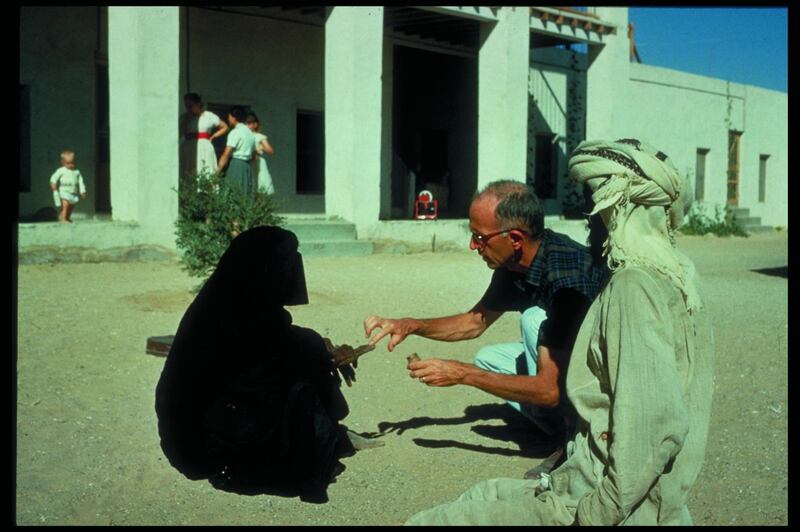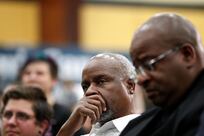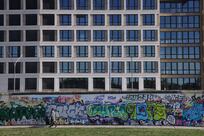Last week's ceremony to honour Dr Zulekha Daud, known as Mama Zulekha, was a reminder of the contribution to healthcare made by early arrivals in the UAE, before the country was even founded.
Mama Zulekha, who was personally thanked by Sheikh Abdullah bin Zayed, arrived in a hot, dusty Sharjah in 1964, at the height of summer, and went on to deliver more than 10,000 babies over nearly half a century. Her service is a reminder of the challenges that faced those who helped save lives before there was either the hospitals or equipment to do so.
In the late 1950s, modern healthcare in Abu Dhabi was almost non-existent. A medically trained couple, Thabit Abdulla and Maliha Ismail, were contributing to the needs of the community in Al Ain but even so, infant and maternal mortality rates were staggeringly high. Only 50 per cent of babies survived and one in three mothers died during childbirth.
Seeking a brighter future for the people, UAE founder Sheikh Zayed and his brother Sheikh Shakhbut invited a medical team from North America to open the Oasis Hospital, Abu Dhabi's first hospital, in Al Ain in late 1960. The team was led by doctors Pat and Marian Kennedy, known as Kenned and Mariam to the local community they were swiftly welcomed into.
Within a short time, mortality rates were cut to less than one per cent and the population began to grow. In fact, many of Abu Dhabi's leaders were born in the Oasis Hospital in the years that followed, including Sheikh Mohammed bin Zayed, Crown Prince and Deputy Supreme Commander of the Armed Forces, and Sheikh Saif bin Zayed. As the crown prince once told the hospital's founders: "If you had not come, we would not be here."
Several other private facilities have existed in other parts of the Emirates over the years, often with the support of visionary local rulers. Dr Sarah Hosman opened a small hospital in Sharjah in 1951 at the invitation of the emirate’s ruler. There was also a maternity ward in Ras Al Khaimah and, in 1967, the Fujairah Maternity Hospital opened in Fujairah, started by Wilhelmina van der Weg, known as Minnie, and Joan Elliot.
I was privileged to know and work alongside many of those early arrivals after taking up a post in the Oasis Hospital in 1984. As well as the Kennedys, there was Gertrude Dyck, nicknamed Doctora Latifa, who arrived in 1962 as a midwife from Canada and helped deliver many of today’s royal family.
Many of those workers are sadly no longer alive; Gertrude died in 2009 and was posthumously honoured with the Medal of Independence of the Third Order by Sheikh Khalifa, President of the UAE.
Nancy Brock, who earned her own affectionate Arabic nickname, Anisa, is now retired in her native Canada and is still well remembered for her Arabic fluency and humorous rapport with the local community.
Dr Larry and Marilyn Liddle (known as Dr Fouad and Layla) arrived in 1975 and served for more than 30 years. There were many others too numerous to name, all of whom played a significant role in the development of today’s UAE culture and healthcare industry.
None of the modern amenities enjoyed in today's UAE were even imaginable. There was no wealth to draw workers from overseas. Leaving the comforts of more developed countries to work in such conditions required more than a quest for a good salary and benefits package.
Many who came in those early days were motivated by a deep faith in God and a love for people. Such sacrifice and love in the face of harsh conditions earned them a deep trust among the locals, a trust which remains to this day.
By the late 1960s, building upon the foundation of modern healthcare, government hospitals began to emerge, offering more specialised services to meet the ever-increasing demands of a rapidly growing nation.
There were also more indirect but equally significant contributions that came as a result of the efforts of these early workers. One in particular cannot be overlooked.
The UAE is sometimes held up as a showcase for peaceful co-existence in the Middle East. Indeed, the ethnic, cultural and religious diversity found in today’s UAE is unequalled anywhere else in the world.
This peaceful co-existence and religious freedom is arguably rooted in the relationship of deep trust built in the beginning between those early workers and the royal family.
From the outset in 1960, the rulers made it clear that other faiths were free to worship as they desired. They have followed their words by granting land for building churches that are seen all over the UAE today.
This legacy of openness and peace has made the UAE a strong nation, an example of what can be done through working hand-in-hand toward a common goal.
Having spent considerable time during the 30 years I worked in the Oasis with many of the older residents of the Al Ain area, I know there is a special place in their hearts for those who came to serve in the early days.
Mention Kenned, Fouad or Doctora Latifa and you will probably hear some very interesting stories - such as Dr Kennedy going on house calls to treat a herd of sick goats. Ask any older resident of Al Ain and each will have stories of their own from those early days.
As you enjoy the comforts and freedoms of life in today’s UAE, it is worth remembering what it was like not very long ago.
Remember to honour the many who came to serve as the nation was being born. Their contributions and the memories that live on are a large part of the real wealth of the UAE today.
Brooks Glett is the former vice president of public and community affairs for Oasis Hospital in Al Ain





